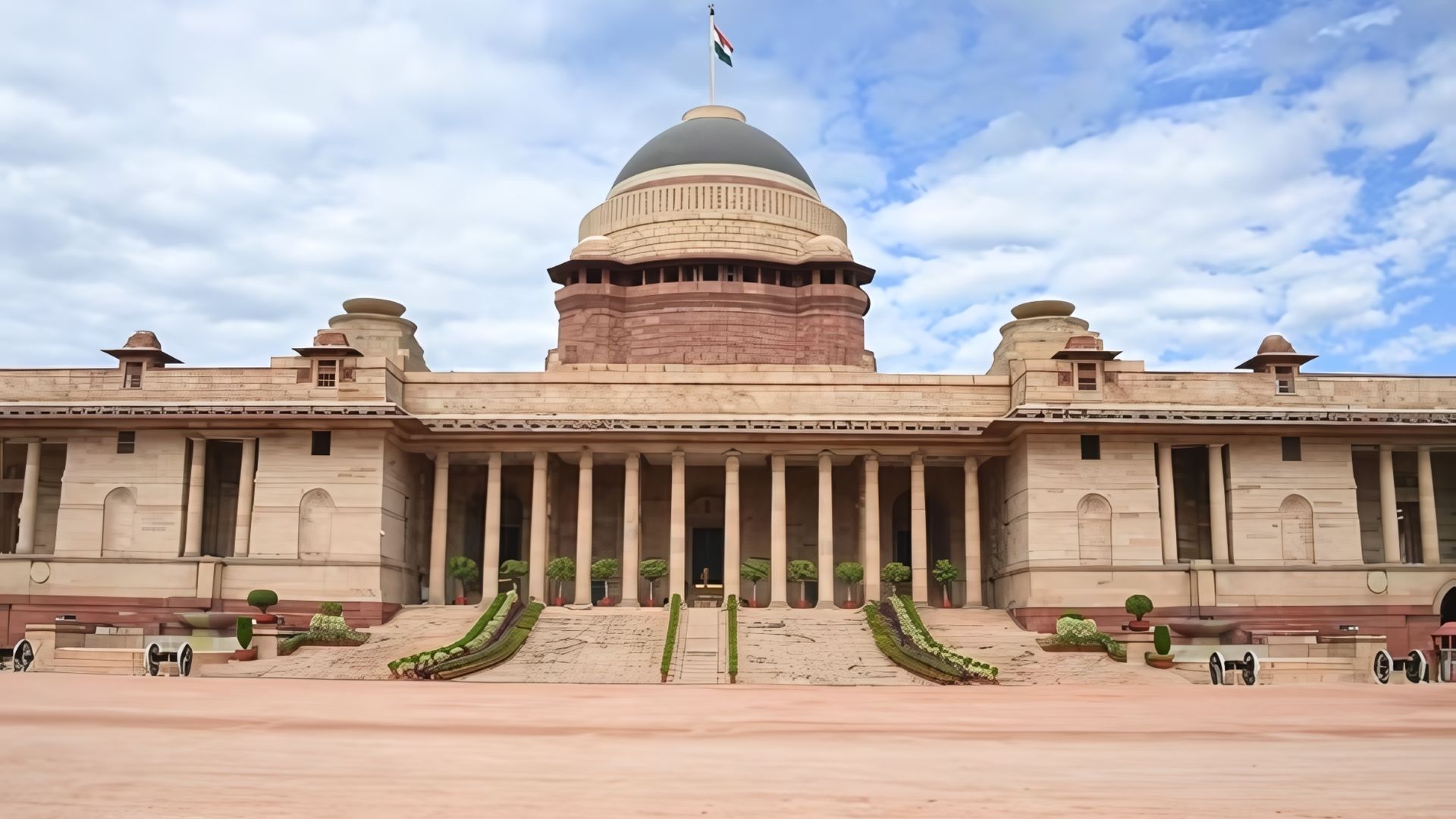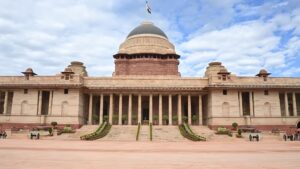President Droupadi Murmu has renamed two significant halls at Rashtrapati Bhavan: ‘Durbar Hall’ is now ‘Ganatantra Mandap,’ and ‘Ashok Hall’ is now ‘Ashok Mandap.’ This change aims to better reflect Indian cultural values and ethos within the historic building.
According to a release from Rashtrapati Bhavan, “Rashtrapati Bhavan, the office and the residence of the President of India, is a symbol of the nation, and an invaluable heritage of the people. Continuous efforts are being made to make it more accessible to people. There has been a consistent endeavour to make the ambience of the Rashtrapati Bhavan reflective of Indian cultural values and ethos.”
The release continued, “Accordingly, President Droupadi Murmu is pleased to rename two of the important halls of Rashtrapati Bhavan – namely, ‘Durbar Hall’ and ‘Ashok Hall’ – as ‘Ganatantra Mandap’ and ‘Ashok Mandap’ respectively.”
This renaming aligns with the BJP government’s broader initiative to eliminate colonial influences from the country’s public spaces.
The statement explained that the term ‘Durbar’ pertains to the courts of Indian rulers and the British Raj, and has become obsolete since India became a republic. “‘Durbar Hall’ is the venue of important ceremonies and celebrations such as the presentation of National Awards. The term ‘Durbar’ refers to courts and assemblies of Indian rulers and the British. It lost relevance after India became a Republic, that is, ‘Ganatantra’. The concept of ‘Ganatantra’ is deeply rooted in Indian society since ancient times, making ‘Ganatantra Mandap’ an apt name for the venue,” it said.
Regarding ‘Ashok Hall,’ which was formerly a ballroom, the statement highlighted that the name change removes colonial influences and aligns with Indian cultural values. “‘Ashok Hall’ was originally a ballroom. The word ‘Ashok’ connotes someone who is “free from all sufferings” or is “bereft of any sorrow”. Also, ‘Ashoka’ refers to Emperor Ashok, a symbol of unity and peaceful co-existence. The National Emblem of the Republic of India is the lion capital of Ashok from Sarnath. The word also refers to the Ashok tree which has deep significance in Indian religious traditions as well as arts and culture. Renaming ‘Ashok Hall’ as ‘Ashok Mandap’ brings uniformity in language and removes the traces of anglicisation while upholding the key values associated with the word ‘Ashok’,” the statement added.














